Widowed By ‘Bandits’ (1): Anguish Of Sokoto Women Who Lost Their Husbands To Terror Attacks
As the activities of terror groups worsen in Northwest Nigeria, for women who lost their husbands to the crisis, healing and survival have become a struggle.
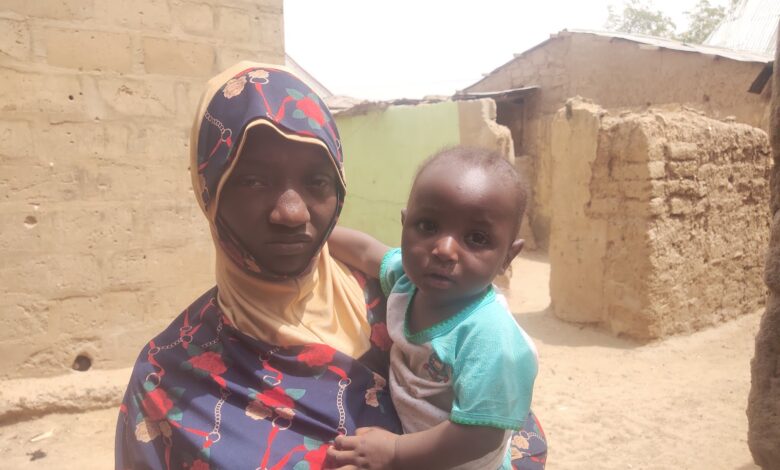
Ziyanu Ibrahim, 37, was sleeping in his room in Goronyo, Sokoto, Northwest Nigeria, on Sunday, Oct. 17, 2021, when he heard gunshots. Some people soon knocked on his door to tell him terrorists, locally described as bandits, had started attacking people at the central market.
As a member of the community’s vigilante group, Ziyanu hurriedly stood from his bed and fetched his gun. His family members, terrified, wished him well as he stepped out of the house. Unfortunately, that was the last time they saw him.
He was one of those killed in the attack. The terrorists who came riding motorcycles reportedly gunned down at least 30 people and maimed many others as they shot sporadically.
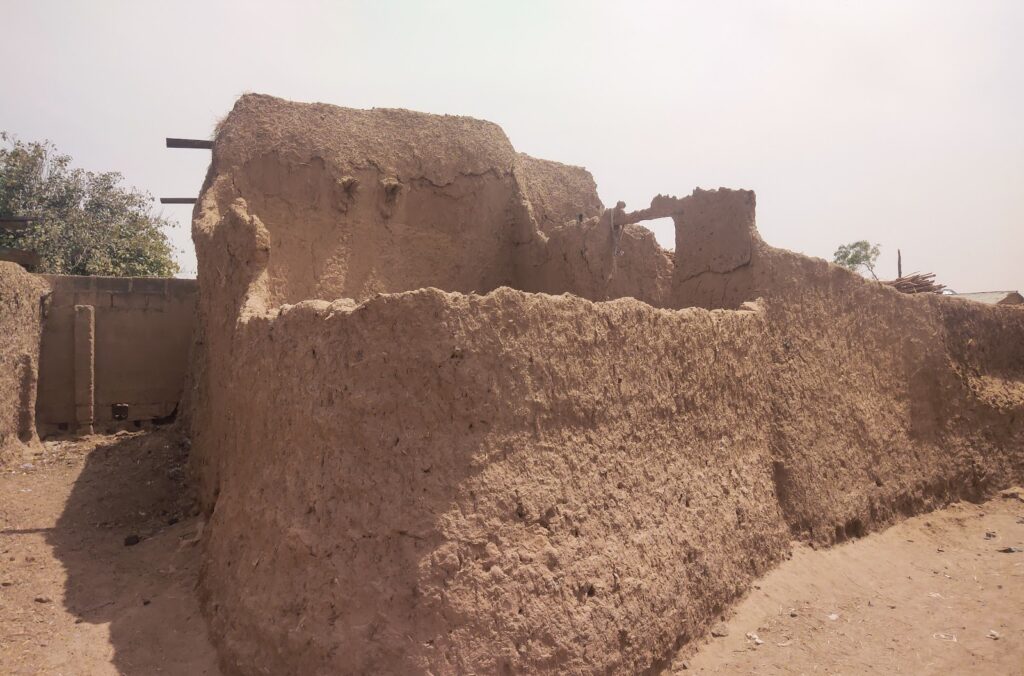
The incident forced hundreds of people out of Goronyo and those who could not flee joined vigilante groups to protect their villages.
Pains of widows
HumAngle visited communities in Goronyo to capture the sorrowful experiences triggered by the October attack, which marked the beginning of many families’ ordeals.
Some of the people killed, like Ziyanu, were residents who went out to defend the community after hearing gunshots.
“My husband died trying to save his town from the wreckage. He went out, as usual, to protect the community from an external attack when the bandits invaded Goronyo central market. We woke up the following day to receive his remains,” Mariam Ibrahim, widow of the deceased, told HumAngle.
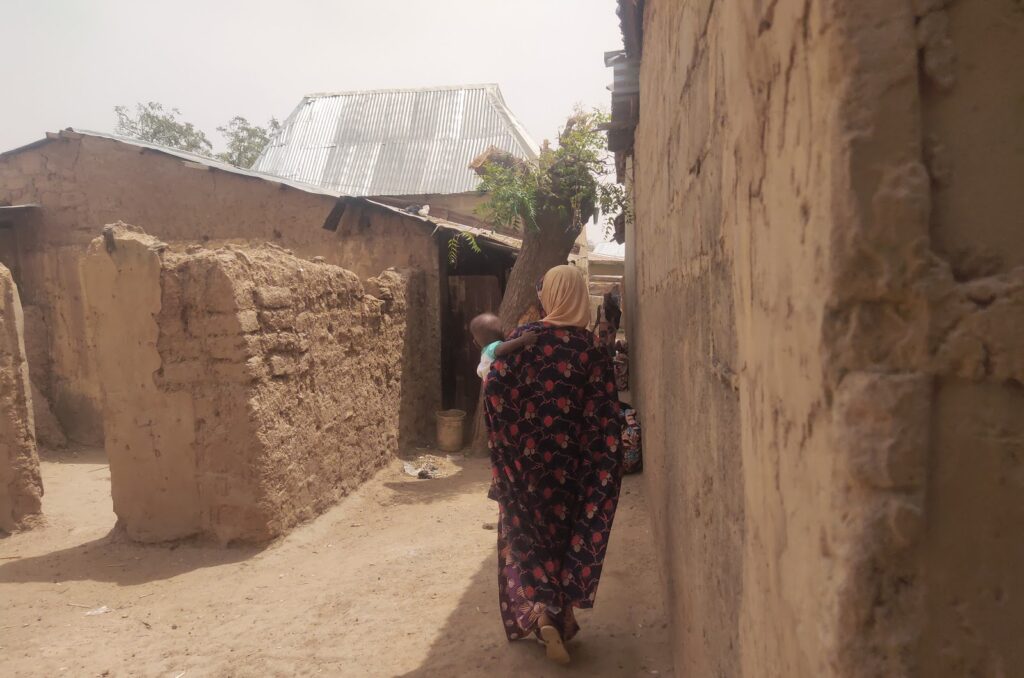
Since his death, 26-year-old Mariam has struggled to care for the four children Ziyanu left behind.
“We are carrying the scars of the evil acts of the bandits and things have gotten worse than ever for me and my children. The town has for long been a theatre of war but I never knew my husband was going to be a victim.”
She told our reporter Ziyanu was one of the desperate youths carrying locally-made guns to protect themselves against the marauders.
“There is no security. The soldiers and police are mostly not available when the terror groups operate. I have been widowed because of this and raising our four children all alone is a big problem for me to handle.”
Mariam said she misses her late husband because he was hard-working and a responsible father. “I feel bad and pained anytime I remember his death. He was always teaching his kids how to read the Quran in the morning but nobody is doing that again.”
Despite the massive impact insecurity in Nigeria’s northwestern region has had on women and children, the challenge has not received much attention.
“This is despite escalating attacks often targeting vulnerable women and children and endangering the latter’s right to education,” noted policy experts Oluwole Ojewale and Omolara Balogun in Jan. 2022. “Amid these attacks, women and girls bear the most significant burden of banditry in the region. Sexual violence has skyrocketed with women frequently raped, kidnapped or commodified by families who are forced to exchange their daughters for protection.”
‘I’m dying slowly’
Five months after her husband was murdered in cold blood by terrorists, Nafisat Bashiru, 26, still trembles. She was at a loss for words when HumAngle visited her in March. “I’m dying slowly,” she said with beads of sweat settling on her forehead.
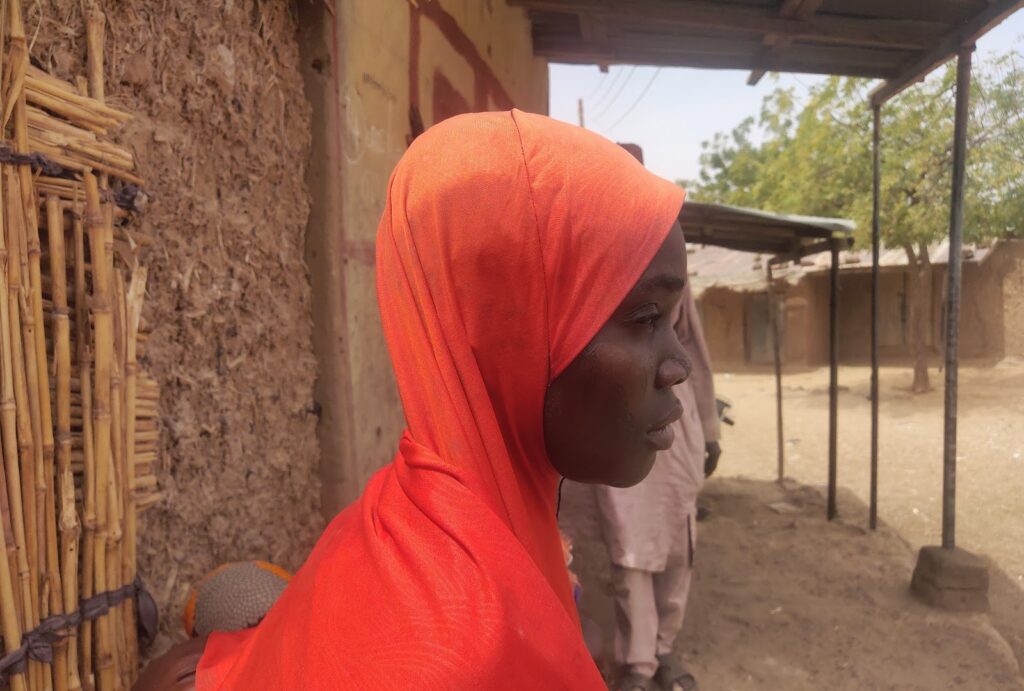
Her husband, Haruna Bashiru, 38, was also killed during the Goronyo market raid. He was briefed about the planned attack on the market hours earlier. His aim was to quickly close his onion shop but that ended his life.
“Since most villages in Goronyo have become strongholds of the terror groups, we can predict when they will operate. My husband was briefed that bandits might attack the market since they often target places with a crowd. He ran to the market to close his shop but didn’t return home alive,” Nafisat told our reporter as she cried profusely.
According to witnesses, Haruna was warning residents to avoid the road that leads to the market square when a stray bullet hit him. His brother, Bello, took him to the hospital where he was pronounced dead. Bello covered him with leaves and then returned home to inform other family members. He was later buried in a mass grave dug for victims of the market attack.

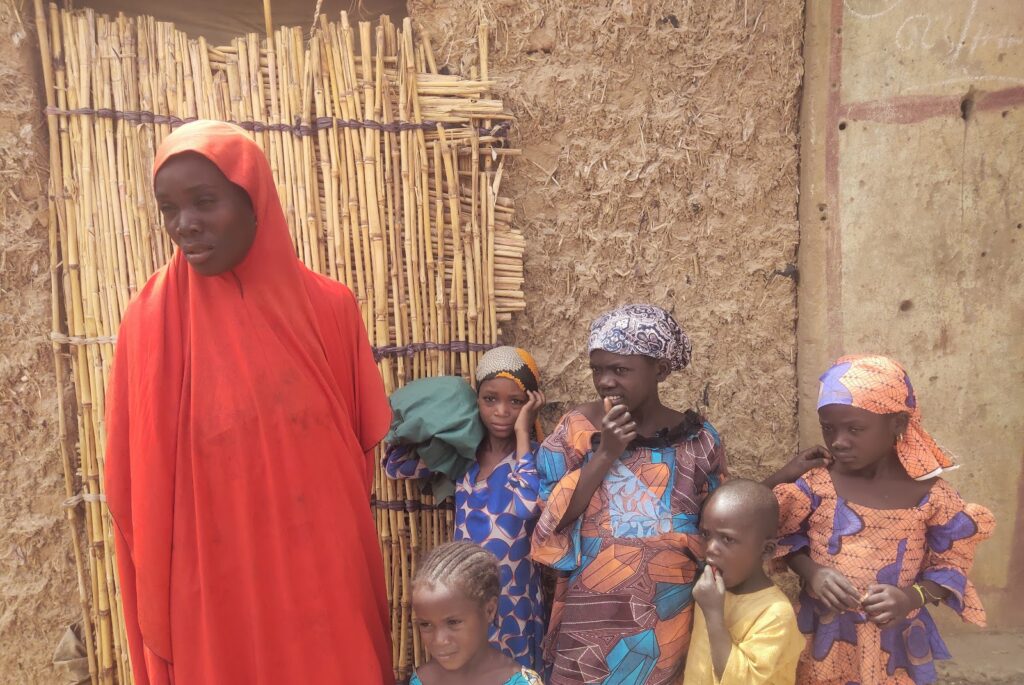
Life has since been difficult for Nafisat and her eight children as they only survive on a small quantity of rice donated to the family monthly by a councillor in the community. Though Nafisat sells wara (cheese curds mostly made from fresh cow milk), the income from the business is not enough to meet the family’s needs.
Like Nafisat, the money Luba Suleman makes from wara isn’t enough for her family. But, unlike Nafisat, she does not receive additional support, so her six children eat only once a day. Her husband, Muhammed Sule, 60, worked as a nail cutter before the terrorists killed him.
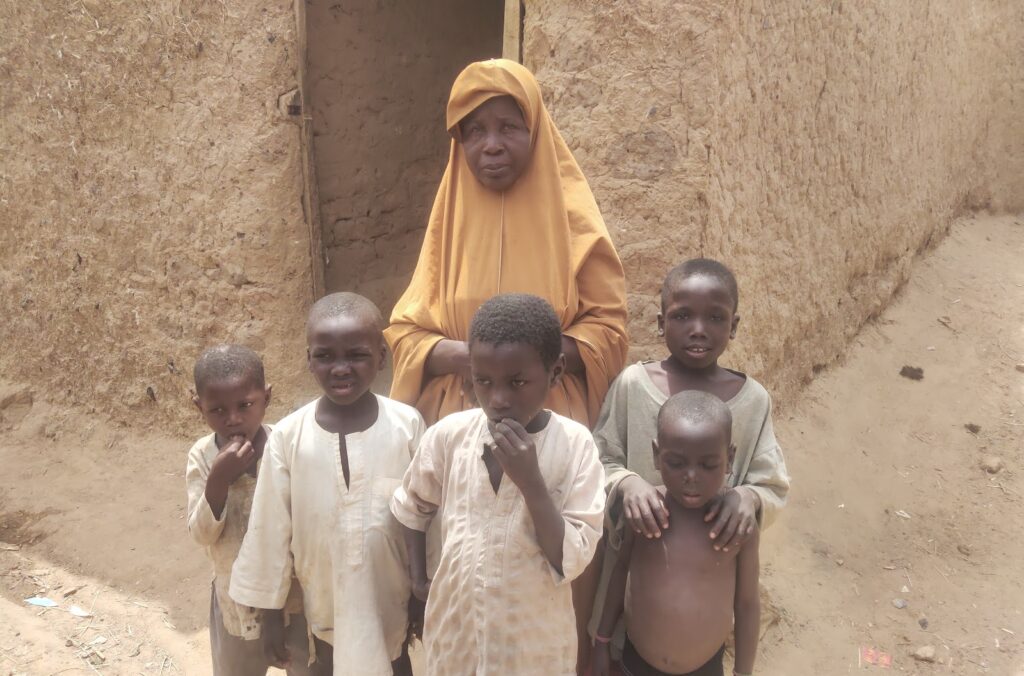
“We had lived together for over 30 years before bandits cut the lives of my husband short,” Luba’s voice was punctuated by agony as she recounted her ordeal. Her husband was hawking when he heard an explosion. The deafening sound was later discovered to be gunshots from a terror group.
When he saw the terrorists approaching, he tried to hide behind a shop but it was too late. Muhammed, according to his widow, got shot in his head. He was confirmed dead in the hospital where most victims of the attack were rushed to.
“I don’t have money for a better business. My husband loved education and even with his little income, he tried to ensure that our children attended school. I have been trying to continue since he died but I do not have the capacity,” Luba said.
Three of the children told our reporter they love formal education but might end up as almajiris (itinerant students of religious knowledge common in northern Nigeria who often learn outside parental care).
No respect for humanity
Aisha Umar, 46, looks depressed and older than her age. She earlier declined speaking with our reporter. For her, new visitors to Goronyo could cause another terror attack. After a while, she gasped for words to relay the horror she saw when terrorists killed her partner.
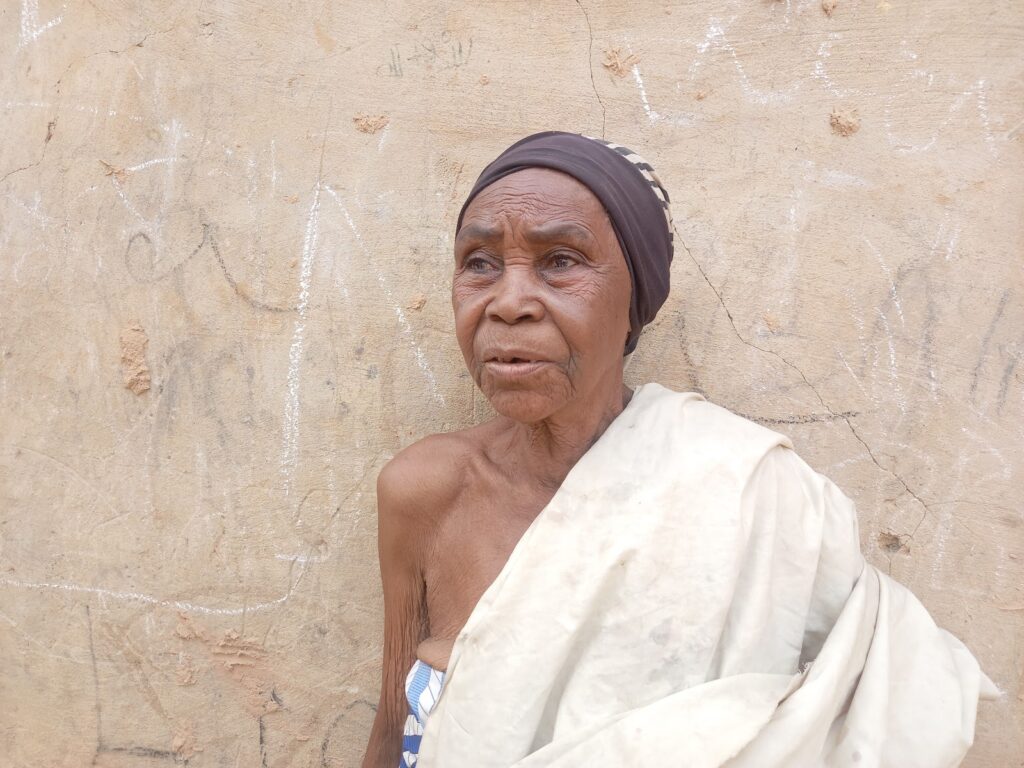
She said if the terror gang that killed her husband, 60-year-old Kabir Umar, knew him enough, they would have spared his life. “My late husband was generous and no one wished him dead when the bandits attacked us. The bandits simply do not have respect for humanity.”
HumAngle learnt that the deceased, a medical officer at Goronyo General Hospital, was killed while returning from work in Aug. 2021.
“I have five children with my husband. A great man well known in almost all the places. He assisted many people when he was alive but no one cared about his family after he died,” a disappointed Aisha said.
A compromise with terrorists
Goronyo, Mai Lalle, Gatawa, Gangara, Dama, Burkusuma, Tudun Katsira, Dama, Lanfige, Bafarawa, and most villages in Sabon Birni, Isa, and other eastern parts of Sokoto are immersed in raging insecurity.
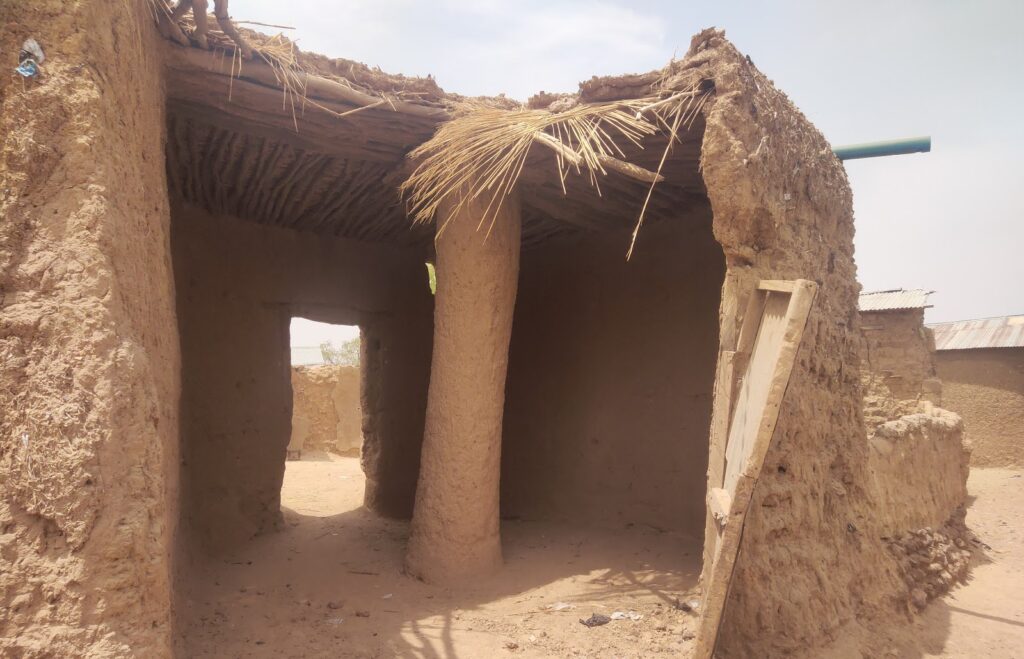
Many residents believe that the area became a safe haven for terror groups because of its proximity to Zamfara, the epicentre of insecurity in the region, and the neighbouring Niger Republic.
The communities also lack adequate security personnel presence and civilians often sign up with the local vigilante forces to defend themselves. For instance, there are only two security checkpoints from Shinaka, in Goronyo, to Sabon Birni, a journey spanning 63 km and more than 15 villages.
Since most of these villages are left defenceless in the face of terror, hundreds of civilians in the bandit-hit parts of the state have reached a compromise with the terrorists.
“We do this by paying them levies. We all cannot vacate our homes so there is a need to compromise,” a community leader, who pleaded anonymity for security reasons, told HumAngle.
Support Our Journalism
There are millions of ordinary people affected by conflict in Africa whose stories are missing in the mainstream media. HumAngle is determined to tell those challenging and under-reported stories, hoping that the people impacted by these conflicts will find the safety and security they deserve.
To ensure that we continue to provide public service coverage, we have a small favour to ask you. We want you to be part of our journalistic endeavour by contributing a token to us.
Your donation will further promote a robust, free, and independent media.
Donate HereStay Closer To The Stories That Matter




